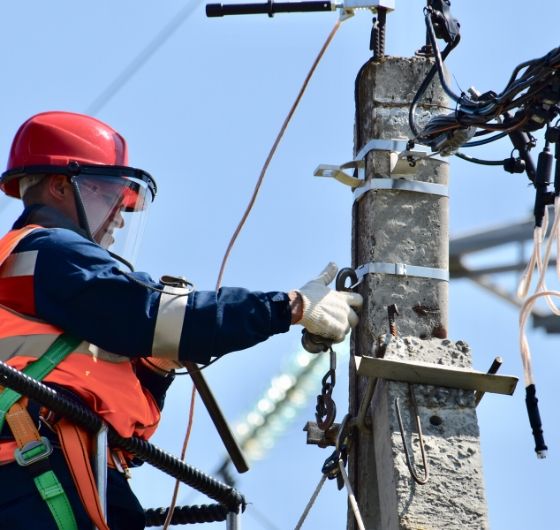If you are interested in pursuing a career as an electrician in Texas, you may already be aware of the job opportunities for individuals entering this field. According to the Bureau of Labor Statistics, employment opportunities for electricians are projected to increase 10 percent between 2018 and 2028 – a rate that is significantly higher than the average projected growth for all occupations. This news may be encouraging for anyone who is thinking about learning how to become an electrician in Texas.
Electrician Licenses, Training, Career Opportunities, Job Responsibilities, and Salary for Electricians in Texas
Electrician Licenses in Texas
Electricians in Texas must be licensed to legally work in the state. The rules and regulations governing
Electrical work and licensing changed between 2004 and 2006 when the Lone Star State took over licensing and oversight through the Texas Department of Licensing and Regulation. There are three basic licenses for electricians in Texas. They include:
- Apprentice License – the candidate must be 16 years old or older and submit the required form.
- Journeyman License – acquire 8,000 hours of work under a master electrician as an apprentice, then apply for and take the journeyman certification test and record a passing score.
- Master Electrician – acquire 12,000 hours of work under a master electrician, hold a journeyman license for 2 years, then apply for and take the master test and record a passing score.
Education and Training Programs in Texas
Seeking formal electrician training through a technical school can provide many benefits. A few benefits of an electrical technology program is hands-on training and learning about different types of electrical workers and apprenticeships.
A few known electrician career paths include the journeyman, inside or residential wireman professionals, power line installers, master electricians and more.
A quality electrical training programs in Texas will provide a genuine learning environment that supports students in understanding the trade and being competitive in the job market. Students can learn about:
- The operation, installation, maintenance, and repair of electronics and electrical wiring
- Handling electrical distribution panels, instrumentation, DC/AC motors and controls, wiring, and power transmissions
- Safety skills, generating estimations, inspections and applicable codes, and regulations
- The fundamentals of electrical work in both residential and commercial settings
1. Type of Clients Served
Electricians serve a diverse customer base in a variety of residential and commercial environments. They can develop skills to provide services needed within homes, businesses, schools, government facilities, churches, and other types of facilities.
2. Safety Training
Electricians must possess the safety skills necessary to work with electricity, wiring, and electronics. They should also have a strong working knowledge of relevant building codes, regulations, and standards.
3. Practical and Professional Skills
Electricians can provide general inspections, evaluations, calibrations, and other commonly requested electrical services. They also can gain proficiency in providing cost estimates for contract work and repair services.
Career Opportunities for Electrician in Texas
Individuals going through a recognized preparatory program are able to begin working in entry-level electrician jobs in Texas such as those that involve wiring installation, servicing of instrumentation systems, and other residential or commercial electrical work. When this entry-level work is completed under the supervision of a Master Electrician, the work hours can be cited when applying for a state license as an electrician. Licensed electricians can work in a variety of specialized fields such as household repair and maintenance and natural gas distribution.
Job Responsibilities for Electrician in Texas
An electrician’s job responsibilities can include reading blueprints, running wires, and tending to electrical problems that arise in a facility and designing and implementing electrical plans to deliver power to one or more locations within a residential or commercial facility. Electricians also focus on the creation and repair of electrical components that consume electricity. They commonly use diagnostic devices to evaluate and troubleshoot electrical equipment and are able to construct electrical devices based on schematics.
Electrician Salary in Texas
According to the Bureau of Labor and Statistics, electricians earned an average of $55,190 in 2018. However, average earnings for electricians tend to vary widely by state and specialty. For example, electricians who work in the Midwestern states such as Illinois, Missouri, Michigan, and Minnesota tend to have higher average earnings than electricians in other states.

What should you do if you are interested in a career as an electrician?
If you would like to learn more about seeking formal training through a school, we invite you to visit Southern Careers Institute. Our Electrical Technician Program in Brownsville, Waco and San Antonio North Campuses. It is designed to arm students with the skills and knowledge to install, operate, maintain, and repair electrical systems in homes and businesses. Here are some of the specific program components students will be trained on:
- Diagnostic skills: Students will learn how to properly diagnose electrical problems and investigate ways to fix those problems.
- Hands-on learning: Students will have the opportunity to apply learned skills under the supervision of a trained electrician.
- Safety skills: Students will learn how to safely handle wiring, motors, and controls. Codes and standards will also be covered.
- Practical skills: Students will learn customer service skills that can help prepare them to work in a commercial or residential setting.
Successful program graduates can receive the education required to succeed in an entry-level career in the electrical field. Graduates can also develop the skills to prepare to work under a master electrician to earn employment hours required for state licensing to eventually become an electrician. We look forward to helping you take your first step on the path to a rewarding career as an electrician!
This article was published on: 10/8/19 6:41 PM
* SCI does not guarantee employment or a starting salary upon graduation, completion, or withdrawal from SCI. As an accredited post-secondary institution, SCI has various federal financial assistance programs available for students who qualify and are enrolled in SCI programs. This does not apply to seminar students.
GI Bill® is a registered trademark of the U.S. Department of Veterans Affairs (VA). More information about education benefits offered by VA is available at the official U.S. government Web site at http://www.benefits.va.gov/gibill.

